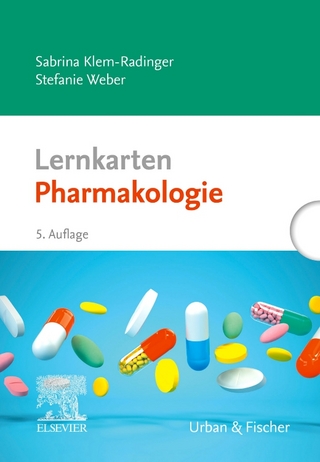
Drug Discovery and Evaluation: Safety and Pharmacokinetic Assays
Springer International Publishing
978-3-031-35528-8 (ISBN)
- Noch nicht erschienen (ca. November 2024)
- Versandkostenfrei innerhalb Deutschlands
- Auch auf Rechnung
- Verfügbarkeit in der Filiale vor Ort prüfen
- Artikel merken
Many aspects of drug safety have become an outstanding and even persistent issue and may occur during the process of both drug discovery and development. Until 15 years ago, drug discovery and evaluation was primarily a sequential process starting with the selection of the most pharmacologically active compound from a series of newly synthesized small molecule chemical series by means of distinctive pharmacological assays. Safety aspects were addressed by evaluation of the selected compound at high doses in a series of specific studies directed at indications other than the intended indication of the new compound. These tests are then followed by pharmacokinetic studies, which are primarily conducted to confirm whether the selected compound possesses a suitable half-life for sufficient exposure and efficacy and, whether it has the desired properties specificity to the intended route of administration. Safety aspects relied predominantly on the conduct of single and repeat toxicologydose studies, which inform changes in organ structure rather than organ function. Both toxicological and pharmacokinetic studies are adapted to the progress of studies in clinical pharmacology and clinical trials. The new edition of this well and broadly accepted reference work contains several innovative and distinguished chapters.
This "sequential" strategy has been abandoned with this new version of the book for several reasons:
- Of the possible multitude of negative effects that novel drugs may impart on organ function, e.g. ventricular tachy-arrhythmia, many are detected too late in non-clinical studies to inform clinicians. On the other hand, negative findings in chronic toxicity studies in animals may turn out to be irrelevant for human beings.
- New scientific approaches, e.g. high-throughput screening, human pluripotent stem cells, transgenic animals, knock-out animals, in silico models, pharmaco-genomics and pharmaco-proteomics, as well as Artificial Intelligence (AI) methods offered new possibilities.
- There are several examples, that show that the "druggability" of compounds was considerably underestimated when the probability of success of a new project was assessed.
The success rate in the pharmaceutical industry and the introduction of new chemical entities to the market per year dropped dramatically, whereas the development time for a new compound increased, sometimes exceeding the patent protection. Research and development scientists, involving the following changes, therefore adopted a change of strategy:
- Parallel instead of sequential involvement of the various disciplines (multidimensional compound optimization).
- The term "Safety Pharmacology" was coined. The International Conference on Harmonization (ICH) founded a Safety Pharmacology Working Group and the Safety Pharmacology Society (SPS) was launched. The discipline provided for evaluation, development and validation of a multitude of safety tests outlined in the 'Core Battery of Studies'.
- Characterizing the exposure profile of a drug by conducting pharmacokinetic studies that evaluates the absorption, distribution, metabolism and excretion should to be investigated at an early stage of development as results contribute to the selection of a compound for further development.
Advancements in Toxicology were achieved by the introduction of new methods, e.g., in silico methods, genetic toxicology, computational toxicology and AI.
The book is a landmark in the continuously changing world of drug research and developments. As such, it is essential reading for many groups: not only for all students of pharmacology and toxicology but also for industry scientists and physicians, especially those involved in clinical trials of drugs, and for pharmacists who must know the safety requirements of drugs.
&nb
Franz Jakob Hock received his Ph.D. degree (Sc.D.) in Zoology at the Institute of Neuroethology and Biocybernetics at the University of Kassel, Germany. He joined the Department of Pharmacology of the pharmaceutical company Hoechst AG in 1976. He initially worked on methods in general pharmacology and nephrology, before becoming head of a laboratory devoted to pharmacological methods for drugs influencing memory and learning. He was then appointed Head of the Laboratory of General and Safety Pharmacology at the Frankfurt site of Aventis Pharma Deutschland GmbH. He received the degree of Fachpharmakologe DGPT (“certified expert pharmacology”) in 1981. In 1983 he spent a sabbatical year at the University of California, Irvine, at the Center for the Neurobiology of Learning and Memory (Director Prof. Dr. James L. McGaugh). He lectured for several years to students in Biology at the University of Kassel and the Technical University Darmstadt. He has published over 100 original papers on methods in Pharmacology and on new compounds. He is currently a member of the Task Force General/Safety Pharmacology German/Swiss Pharmaceutical Companies. He served several times as a member of the program committee of the Safety Pharmacology Society. He is a member of several domestic and international scientific societies. He now works as a consultant in pharmaceutical business development.
Preface.- Part 1 Safety Pharmacology.- Part 2 Safety Pharmacokinetics.- Part 3 Safety Toxicology.
| Erscheint lt. Verlag | 17.11.2024 |
|---|---|
| Zusatzinfo | L, 2100 p. In 2 volumes, not available separately. |
| Verlagsort | Cham |
| Sprache | englisch |
| Maße | 178 x 254 mm |
| Themenwelt | Medizin / Pharmazie ► Medizinische Fachgebiete ► Pharmakologie / Pharmakotherapie |
| Medizin / Pharmazie ► Pharmazie | |
| Naturwissenschaften ► Biologie ► Biochemie | |
| Technik | |
| Schlagworte | Bioanalytical Assays • clinical studies • Safety Assays • Safety Pharmacokinetics • Safety Pharmacology • Safety Toxicology |
| ISBN-10 | 3-031-35528-8 / 3031355288 |
| ISBN-13 | 978-3-031-35528-8 / 9783031355288 |
| Zustand | Neuware |
| Haben Sie eine Frage zum Produkt? |
aus dem Bereich


